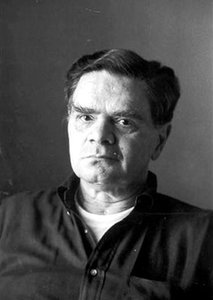A Quote by William Carlos Williams
The art of the poem nowadays is something unstable; but at least the construction of the poem should make sense; you should know where you stand. Many questions haven't been answered as yet. Our poets may be wrong; but what can any of us do with his talent but try to develop his vision, so that through frequent failures we may learn better what we have missed in the past.
Related Quotes
I should think that many of our poets, the honest ones, will confess to having no manifesto. It is a painful confession but the art of poetry carries its own powers without having to break them down into critical listings. I do not mean that poetry should be raffish and irresponsible clown tossing off words into the void. But the very feeling of a good poem carries its own reason for being... Art is its own excuse, and it’s either Art or it’s something else. It’s either a poem or a piece of cheese.
It's difficult to put your own bare ass out on the limb every time you sit down to write a poem. But that's really sort of the ideal. Because if we don't discover something about ourselves and our world in the making of a poem, chances are it's not going to be a very good poem. So what I'm saying is that a lot of our best poets could be better poets if they wrote less and risked more in what they do.
A successful poem says what a poet wants to say, and more, with particular finality. The remarks he makes about his poems are incidental when the poem is good, or embarrassing or absurd when it is bad and he is not permitted to say how the good poem is good, and may never know how the bad poem is bad. It is better to write about other people's poetry.
The statement of ideas in a poem may have to do with logic. More profoundly, it may be identified with the emotional progression of the poem, in terms of the music and images, so that the poem is alive throughout. Another, more fundamental statement in poetry, is made through the images themselves those declarations, evocative, exact, and musical, which move through time and are the actions of a poem.
There is (as I now find) no remorse for time long past, even for what may have mortified us or made us ashamed of ourselves when it was happening: there is a pleasant panoramic sense of what it all was and how it all had to be. Why, if we are not vain or snobbish, need we desire that it should have been different? The better things we missed may yet be enjoyed or attained by someone else somewhere: why isn't that just as good? And there is no regret, either, in the sense of wishing the past to return, or missing it: it is quite real enough as it is, there at its own date and place.
I hope any poem I've ever written could stand on its own and not need to be a part of biography, critical theory or cultural studies. I don't want to give a poetry reading and have to provide the story behind the poem in order for it to make sense to an audience. I certainly don't want the poem to require a critical intermediary - a "spokescritic." I want my poems to be independently meaningful moments of power for a good reader. And that's the expectation I initially bring to other poets' writing.
The subject of the poem usually dictates the rhythm or the rhyme and its form. Sometimes, when you finish the poem and you think the poem is finished, the poem says, "You're not finished with me yet," and you have to go back and revise, and you may have another poem altogether. It has its own life to live.
In a sense, the first (if not necessarily the prime) function of a novelist, of ANY artist, is to entertain. If the poem, painting, play or novel does not immediately engage one's surface interest then it has failed. Whatever else it may or may not be, art is also entertainment. Bad art fails to entertain. Good art does something in addition.




































